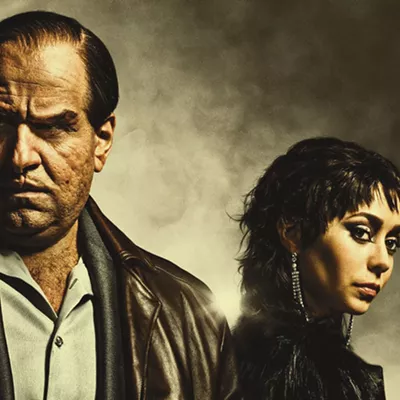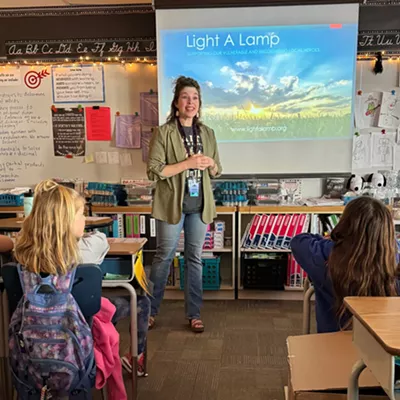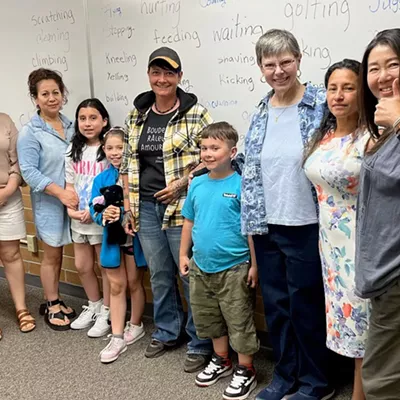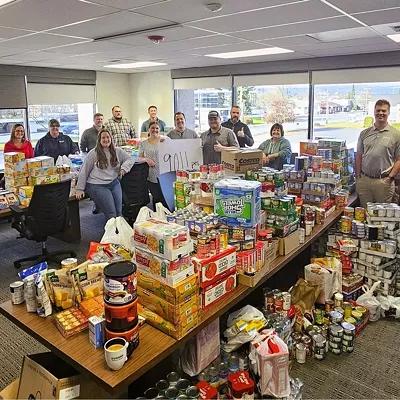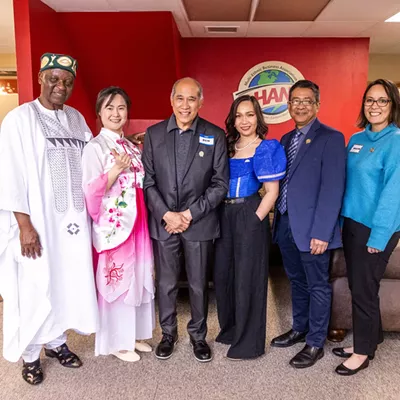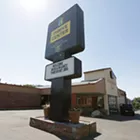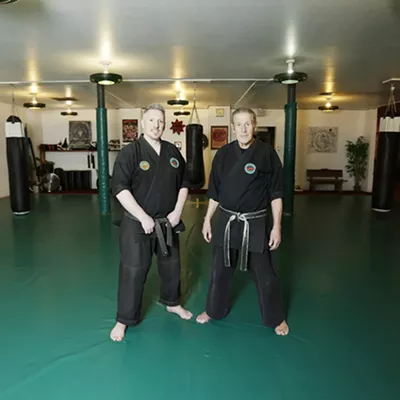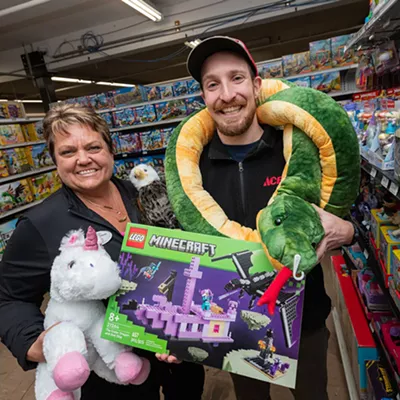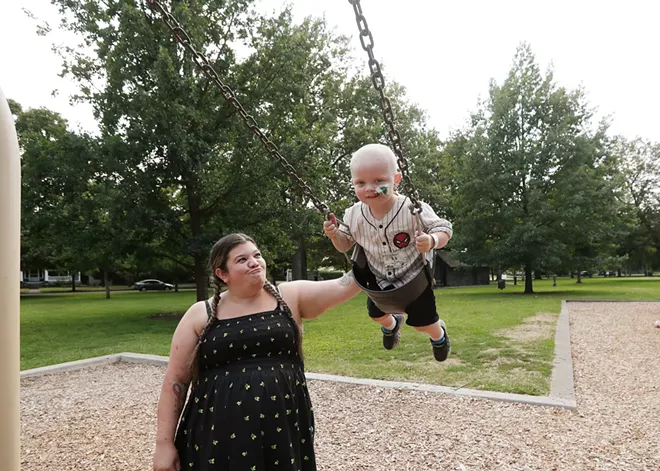
On Meagan Glubrecht's right forearm is an unmistakable tattoo. It's a golden orange ribbon crossed in the recognizable loop of cancer awareness. Alongside it is an abbreviated date that represents June 6, 2021, the day her son Oliver was born.
Three months before his third birthday, Ollie was diagnosed with B-cell acute lymphoblastic leukemia, a form of cancer in which a type of white blood cell grows out of control. In healthy individuals, these white blood cells are indispensable to the body's immune system, helping fight infection. When a mutation causes them to go rogue, however, they displace bone marrow and seep out into the blood.
Ollie's diagnosis came on the heels of months of uncertainty. Doctors initially told Glubrecht that Ollie's worsening lethargy, pallor, cold sweats and labored breathing likely stemmed from something simple and transient — a "childhood virus," she says.
It wasn't until one health care professional happened to take a more skeptical view of those assessments that medical teams were able to correctly identify the cause of Ollie's symptoms. Almost before Glubrecht had time to process the news, she and Ollie were rushed to Sacred Heart Medical Center for a bone marrow draw.
"They couldn't even get a full syringe because of how many cells were in his marrow," she recalls.
B-cell ALL, as it's often called, is a relatively common form of childhood cancer, affecting roughly 1 in 1,750 children. But statistics like that come as scant consolation to families with a child who's been diagnosed with the disease.
For Glubrecht, Ollie's formal diagnosis only led to more questions about the course of treatment and how their lives would change from that point on. As a single mother of two, she wondered how it would be possible to balance everyday responsibilities with the care regimen that Ollie needed.
Soon, though, a hospital social worker introduced her to Denise Moss of the Childhood Cancer Coalition. Glubrecht found Moss to be a vital source of knowledge and empathy for the tribulations of childhood cancer, especially in the early days.
When Ollie had to have his nasogastric tube inserted to administer medication, "Denise actually stood with me because I couldn't stay in the room with him," she says. "She held me and talked to me and gave me as much support as I could possibly ask for, because she's gone through it herself."
Moss can be found at Sacred Heart providing support to kids and parents on behalf of the Childhood Cancer Coalition every weekday. On weekends and holidays, you'll find Lindsay Morgan. Coalition Executive Director Leslie Woodfill says both women are special resources because of their innate compassion.
"They get it," Woodfill says. "They understand the fear that these parents are going through. They've seen their children go through it and what that looks like for a child who experienced a cancer diagnosis."
That firsthand experience can be invaluable, even for parents like Glubrecht who have a large family support network.
"You can talk to someone who hasn't had cancer and they're like, 'Well, we feel for you,'" Glubrecht says. "But when you have a person who has gone through what you're going through, they can help you step by step with what they've actually done."
The coalition's support takes many forms. Sometimes Moss or Morgan will drop in with a blanket or toiletries and a change of clothes. Other times they'll slip a coffee card into a weary parent's hand or entertain a child with an iPad as they undergo painful treatment. They'll also stop by and chat with the patients as their parents step out of the room for a moment.
"It gives them a chance to take a break and just breathe, where they're not having to keep a brave face on for their kid," Woodfill says.
In some cases, the Childhood Cancer Coalition (formerly called the American Childhood Cancer Organization Inland Northwest) will temporarily cover a family's utility bills or grocery costs. The organization also puts together field trips and activities to help foster a sense of community among the families with this shared experience. During the winter holidays, there is a tradition of "adopting" families to ease their burden and restore joy to the season.
"To bring peace and hope and light to a family and a child who are experiencing cancer, I think it's a really good way to be a part of our community and make a difference," Woodfill says. "What we try to keep giving [families] is an opportunity where kids can just be a kid and parents can just be a parent."
To Woodfill, Ollie exemplifies why the Childhood Cancer Coalition continues to live out its mission. He's not a child defined by a disease; he's a 3-year-old who loves swings and sticker books and playing with his pet Indian Runner duck named Sonchi.
"He's the epitome of a kid who just wants to be a kid, and he's got this dang cancer diagnosis," she says. "But he's not letting it dim his spirits." ♦




